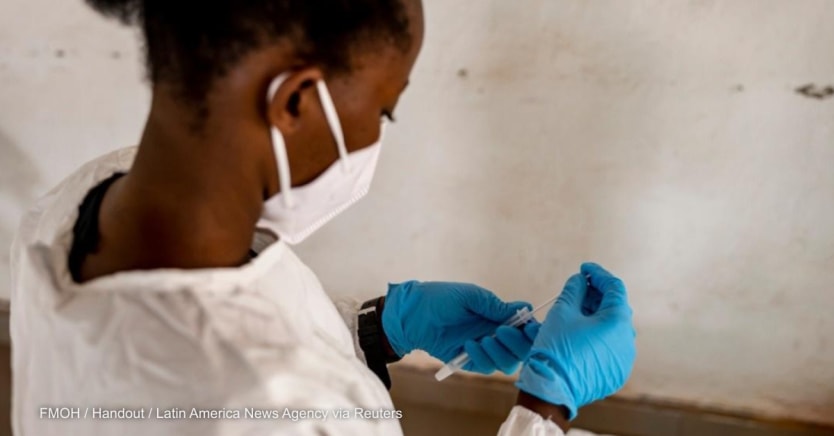Only 1 in 4 African health workers are fully vaccinated for COVID-19

A World Health Organization survey of 25 African nations found an average of only 27% of health workers — or 1.3 million people — in those countries are fully vaccinated against COVID-19.
This is partially due to a lack of availability of vaccination services, particularly in rural areas, and vaccine hesitancy, including concerns over vaccine safety and adverse side effects, said Matshidiso Moeti, director of WHO’s Regional Office for Africa, during a press briefing on Thursday. She added that recent studies found that only 40% of health workers planned to be vaccinated in Ghana, and less than 50% in Ethiopia.
Of the countries surveyed, only six had fully vaccinated more than 90% of its health workers, and nine vaccinated less than 40%. In contrast, a global WHO survey found that 22 countries — mostly high-income — had vaccinated over 80% of their health workers.
The survey results are alarming, Moeti said, because the continent already suffers from health care worker shortages. Sixteen countries have less than one health worker for every 1,000 people. The countries with the lowest ratio of patients to health workers include Benin, Central African Republic, Chad, Madagascar, and Niger, she said.
“Even one unnecessary COVID-19 infection is one too many among our health workers,” Moeti said.
Some of the countries doing well in vaccinating large numbers of health workers include Lesotho, Cabo Verde, São Tomé and Príncipe, Rwanda, Kenya, Madagascar, Botswana, Eswatini, and Zambia, said Richard Mihigo, coordinator of the immunization and vaccines development program for WHO Africa. Other countries that have struggled include Chad, the Democratic Republic of Congo, Central African Republic, and Cameroon.
Across the continent, only about 6.6% of the overall population is fully vaccinated. But even amid low vaccination rates, some African nations are reluctant to acquire new shipments of vaccines, which Moeti described as “reasonable,” as countries are concerned about having too many vaccines that might expire before they are able to roll them out. South Africa asked Johnson & Johnson and Pfizer to delay new deliveries of vaccines because the country had too much stock in comparison to what it could administer.
But even though some countries are experiencing challenges around rolling out vaccines quickly, there is overall good performance, Mihigo said. Thirty African nations have administered more than 80% of what they’ve received, another 20 have administered between 50% and 79%, and only two — DRC and Djibouti — have administered less than 20%.

More reading:
► Health experts worried about high mutations in new COVID-19 variant
► Tackling logistical odds stacked against COVID-19 vaccination in Africa
Search for articles
Most Read
- 1
- 2
- 3
- 4
- 5








